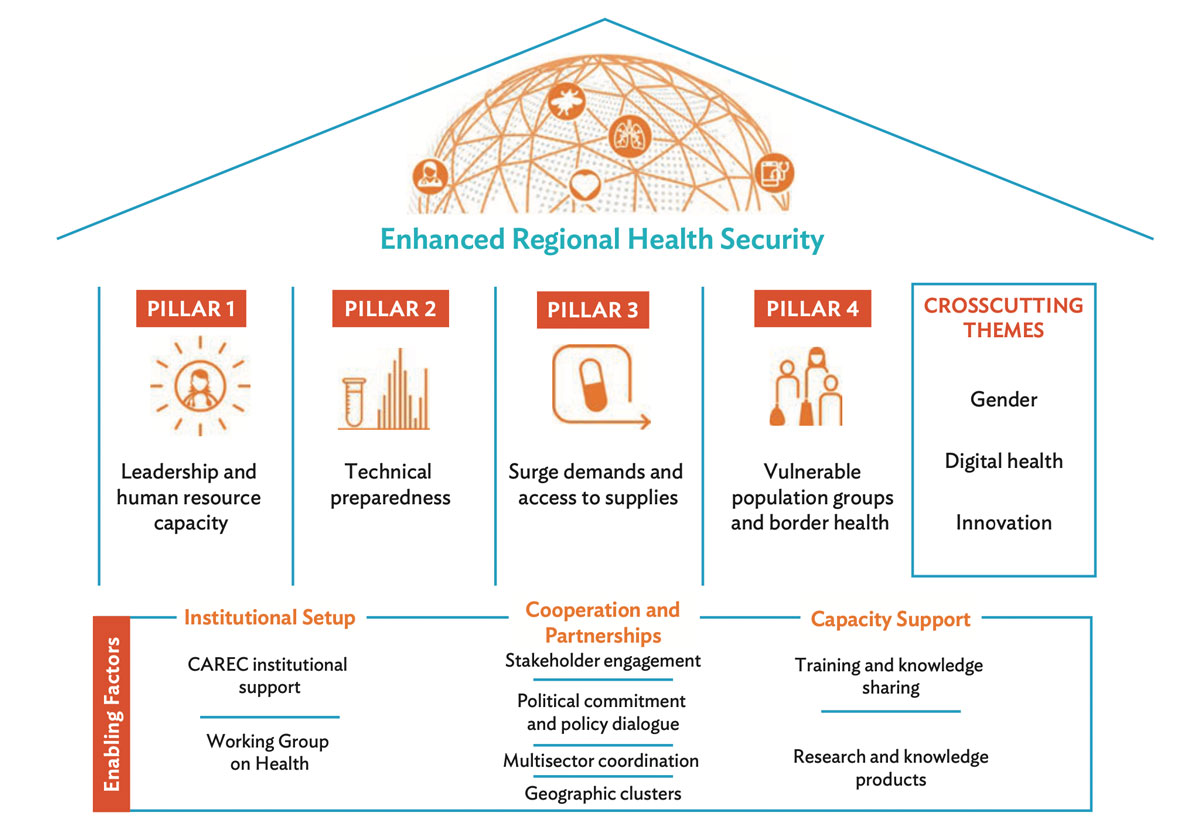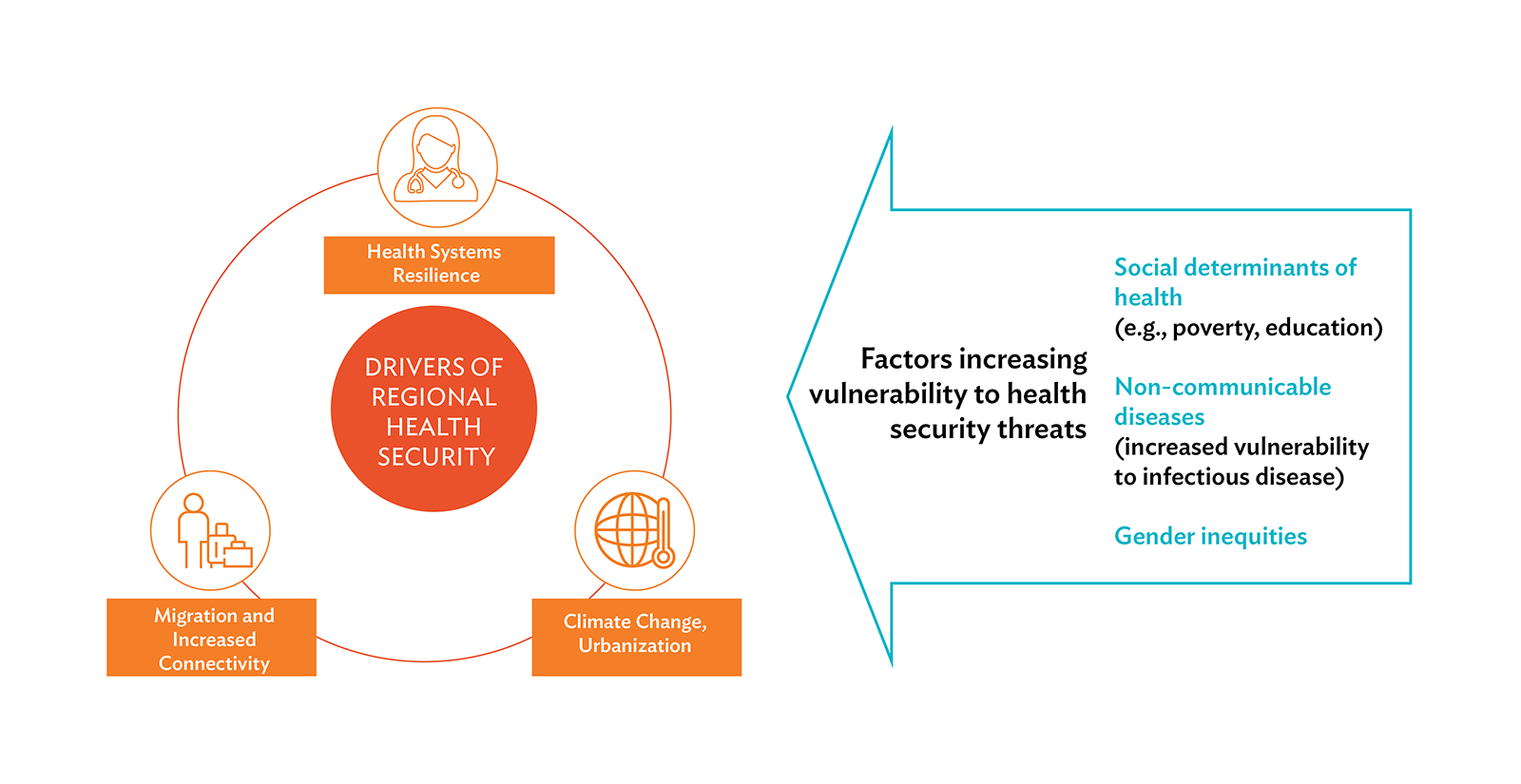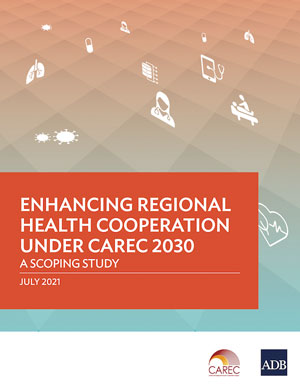The CAREC Health Strategy 2030 is routed on cooperation, coordination, equity, evidence, sustainability, ownership and alignment as main principles. Why?
Regional health cooperation is key for building more resilient health systems and effective health security across the region. Cooperation can maximize the impact of interventions in health systems through taking advantage of and building on existing initiatives.
Fostering multisector coordination is crucial to achieve public health outcomes. It involves collaboration among ministries, agencies, academia, and civil society. The COVID-19 pandemic highlighted the need for interagency platforms. Also, effective management using One Health approaches requires holistic coordination across various factors.
Focusing on vulnerable populations to ensure they are not excluded from health care. CAREC health initiatives address barriers like high costs and accessibility issues, particularly at the primary care level. Regular monitoring ensures the benefits of initiatives include the most vulnerable segments of the population and consider women’s specific needs.
Using the best evidence and focusing on feasibility are important to ensure successful implementation. Gap or needs assessments guide project design, ensuring steps align with evidence and reality. Pilot testing fosters innovation and learning from new approaches.
Safeguarding sustainability and ownership in aligning the CAREC Health Strategy with national priorities and promote long-term achievements. Cooperative national ownership and a phased approach allow lessons learned from one phase to inform the next.
Alignment with global health policies and frameworks means integrating initiatives such as International Health Regulations (2005), WHO’s NCDs Global Monitoring Framework, and globally accepted ethical guidelines. The CAREC Health Strategy is also aligned with the UN Sustainable Development Goals and commitments to universal health coverage.
With a framework to guide its work and a regional investment plan to make it happen, the CAREC Health Strategy strives for an ambitious vision: “public health threats in the CAREC region are addressed comprehensively, efficiently, and sustainably through adopting a regional approach while safeguarding the needs of the most vulnerable segments of the population.”
The strategy stands on four thematic pillars:
All of this work is supported by important crosscutting themes of gender, innovation, and digital health.

The CAREC Health Strategy 2030 lays out a vision for a healthier, secure, sustainable, and climate-resilient future. Its implementation roadmap, the Regional Investment Framework for Health 2022-2027, shows how it can be done. The strategy and investment framework are CAREC country-owned, and rooted in shared values of equity, cooperation, evidence-informed decision-making, and sustainability.
CAREC Health Strategy





